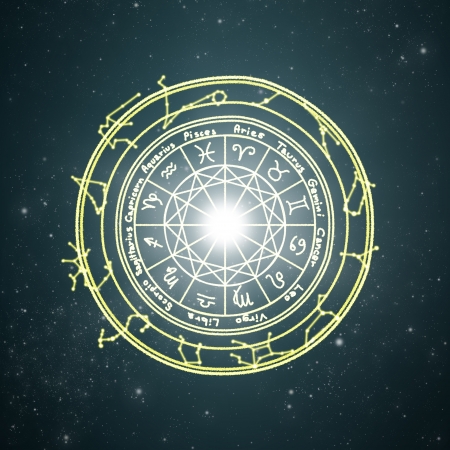Astrology in Contemporary British Society
In the fabric of modern British society, astrology occupies a curious and evolving space. Once relegated to the margins as a relic of bygone eras or the preserve of tabloid columns, astrology has undergone a renaissance, seamlessly weaving itself into both everyday conversation and personal introspection. Its historical roots in Britain run deep—astrological charts were once consulted by monarchs and nobles alike, with figures such as John Dee advising Queen Elizabeth I. Today, this ancient discipline enjoys renewed popularity across a broad spectrum of society, from university students in bustling cities like London and Manchester to professionals seeking guidance amidst lifes uncertainties. The contemporary British approach to astrology is marked by an intersection of tradition and innovation; while some embrace it as a spiritual guide, others regard it as a tool for self-reflection or entertainment. This resurgence is evident in the proliferation of astrology-themed events, podcasts, and workshops, as well as the increasing number of British astrologers contributing nuanced perspectives to discussions about identity, relationships, and decision-making. Ultimately, astrologys role in Britain reflects both its enduring heritage and its capacity to adapt—bridging centuries-old wisdom with the questions and aspirations of todays diverse demographic landscape.
Foundations of British Astrological Practice
Astrology in the United Kingdom is distinguished by a blend of empirical tradition, philosophical inquiry, and social adaptation. British astrologers have long drawn upon both classical principles and local cultural influences, shaping a practice that is both rigorous and uniquely reflective of the nation’s character. To understand how astrology informs life decisions in Britain, it is essential to consider the historical and institutional frameworks that underpin its use today.
Historical Figures and Institutions
The evolution of British astrology owes much to prominent individuals and organisations that have contributed to its credibility and visibility. Notable figures such as William Lilly, whose 17th-century texts laid the groundwork for horary astrology, and Alan Leo, who popularised psychological approaches in the early 20th century, continue to influence contemporary practice. Institutions like the Astrological Association of Great Britain and the Faculty of Astrological Studies have established standards for professional conduct, education, and research, ensuring a continuity of scholarly rigor within the field.
Cultural Influences Shaping British Astrology
| Influence | Description | Impact on Practice |
|---|---|---|
| Classical Scholarship | Emphasis on ancient Greek, Roman, and Arabic texts adapted for local context | Strong foundation in traditional techniques blended with modern interpretations |
| British Rationalism | Integration of critical thinking and scepticism into astrological analysis | Encourages evidence-based application and ethical standards |
| Social Context | Awareness of class structure, regional identity, and local customs | Makes astrological advice more relevant to individual circumstances in Britain |
| Royal Patronage & Historical Events | Astrologers historically consulted by monarchy and politicians (e.g., Elizabeth I’s court) | Legitimised astrology as a tool for guidance at both personal and national levels |
The Enduring Legacy in Modern Life Decisions
The confluence of these influences has resulted in a distinctively British approach to astrology—one that values both tradition and innovation. Whether consulting natal charts or forecasting political trends, British astrologers often reference historical precedents while remaining attuned to present-day realities. This dual focus helps maintain astrology’s relevance as a resource for making informed life decisions amidst the complexities of modern UK society.
![]()
3. Astrological Insights for Decision-Making
British astrologers have long been known for their nuanced and practical approach to interpreting natal charts and planetary transits, weaving together ancient wisdom with the realities of contemporary life in the UK. At the heart of their practice lies the belief that astrology is not about fate, but about informed choice. By analysing the positions of planets at the moment of ones birth—a natal chart—astrologers discern core personality traits, underlying motivations, and areas of strength or challenge. For example, a London-based astrologer might examine a client’s Mercury placement to provide tailored advice on communication strategies in a multicultural workplace or public sector environment.
When considering planetary transits, British practitioners focus on how current cosmic movements interact with an individuals natal chart, highlighting periods ripe for change or caution. A classic scenario involves Saturn returns, which often coincide with significant life milestones such as career shifts or moving cities—events especially pertinent within the dynamic urban landscape of the UK. Anecdotal evidence abounds: one client from Manchester recounted how guidance during a challenging Mars transit helped them navigate tensions at home while balancing remote work arrangements—a common British dilemma in recent years.
Astrologers also take into account uniquely British contexts when offering advice. For instance, during Mercury retrograde, clients are often counselled to double-check travel plans before embarking on a bank holiday trip or to exercise patience during local council negotiations. These culturally attuned insights not only demystify astrology but empower individuals to make conscious decisions in everyday matters—from job interviews in bustling city centres to choosing a new flat in the countryside. Ultimately, British astrologers bridge celestial patterns with grounded advice, ensuring that their guidance resonates with the lived experiences and societal rhythms of life in the UK.
4. Common British Life Decisions Influenced by Astrology
Across the United Kingdom, astrology has woven itself into the fabric of daily decision-making, offering guidance in moments of personal and professional uncertainty. While astrology is often associated with a sense of cosmic curiosity, many Britons turn to reputable astrologers for practical advice regarding pivotal life choices. In this section, we examine the most typical scenarios in which individuals in the UK consult astrological counsel—focusing on career transitions, property decisions, and relationships.
Career Moves
It is not uncommon for professionals in Britain to seek astrological insights when contemplating a job change or considering a new business venture. Astrologers may be consulted to determine auspicious timings, analyse birth charts for vocational strengths, or predict potential periods of challenge and opportunity within one’s field.
Astrological Guidance for Career Decisions
| Situation | Astrological Approach | Common Questions |
|---|---|---|
| Changing Jobs | Electional astrology for timing; natal chart analysis | When should I make my move? Is this field aligned with my strengths? |
| Starting a Business | Transit analysis; compatibility with partners | Are market conditions favourable? Should I partner with someone? |
Property and Relocation Choices
The British have long held traditions around home ownership and relocation, and astrology plays an understated yet significant role in such decisions. Individuals may consult astrologers before signing contracts, moving house, or even selecting locations based on planetary influences that promise harmony and prosperity.
Astrology and Property Matters
| Decision Point | Astrological Consideration |
|---|---|
| Selecting Move-in Dates | Lunar cycles and benefic planetary aspects |
| Choosing a Neighbourhood | Astral mapping (locational astrology) |
Relationships and Personal Connections
Whether it concerns romantic partnerships or family dynamics, seeking astrological wisdom is a time-honoured practice in Britain. Compatibility readings (synastry) are particularly popular prior to engagements or marriage, as individuals aim to understand deeper patterns of connection or sources of tension revealed by their stars.
Typical Relationship Queries Addressed by British Astrologers:
- Is this person truly compatible with me long-term?
- What are the best dates for significant milestones (engagements, anniversaries)?
- How can we navigate recurring challenges according to our birth charts?
This intersection between tradition and modernity illustrates how astrology continues to shape major British life decisions, providing structure and reassurance amidst life’s uncertainties.
5. Addressing Scepticism: British Rationalism Meets the Celestial
In the United Kingdom, a nation renowned for its empiricist tradition and scientific rigour, astrology often finds itself under the magnifying glass of public scepticism. This dialogue between rational enquiry and celestial speculation is not merely academic; it shapes how astrology is practised, perceived, and defended by British astrologers. At the heart of this ongoing conversation lies the intersection of two powerful cultural currents: the deep-rooted British penchant for evidence-based reasoning and the enduring fascination with cosmic symbolism.
Astrologers in Britain are acutely aware of their position within a culture that prizes logic and demonstrable proof. As such, many have developed nuanced ways of addressing doubt, engaging directly with critics who dismiss astrology as mere superstition or ‘nonsense’. Rather than shying away from such challenges, prominent practitioners often embrace them as opportunities for thoughtful discourse. They highlight astrology’s historical significance in British society—citing figures like Sir Isaac Newton, who himself entertained astrological thought—as well as its psychological value in fostering self-reflection and personal growth.
British astrologers frequently employ a measured language that acknowledges astrology’s limits while emphasising its role as a symbolic system rather than a deterministic science. This approach resonates with those who appreciate metaphor and archetype, even if they remain unconvinced by literal predictions. In interviews and public talks across the UK, astrologers invite sceptics to view astrology less as an empirical claim about causality and more as an ancient language for understanding cycles, patterns, and human experience—a perspective that aligns with the country’s long tradition of philosophical debate.
To defend their craft, many UK astrologers also point to contemporary research into synchronicity, consciousness studies, and statistical investigations into planetary correlations. While they do not claim astrology can be proven in the conventional sense, they argue for its relevance on grounds of meaning-making and subjective insight. The emphasis is thus placed not on ‘proving’ astrology by laboratory standards but on demonstrating its utility in helping individuals make sense of life’s uncertainties.
This open engagement with scepticism has led to a distinctive style within British astrology—one marked by humility, intellectual curiosity, and a willingness to coexist with doubt. Far from retreating into dogma, British astrologers continue to refine their practice in dialogue with both critics and clients, upholding a balance between celestial inspiration and terrestrial reason that reflects the unique temperament of their homeland.
6. Finding a Trusted Astrologer in the UK
For those who wish to use astrology as a compass for life’s pivotal choices, selecting a reputable and qualified astrologer is paramount. The United Kingdom boasts a rich astrological tradition, yet navigating this field requires discernment and due diligence.
Understanding Regulation and Professionalism
While astrology is largely self-regulated in Britain, there are respected professional bodies such as the Association of Professional Astrologers International (APAI) and the Astrological Association of Great Britain. Membership in these organisations signifies adherence to ethical guidelines and a commitment to ongoing study. Prospective clients should verify an astrologer’s credentials, training background, and whether they abide by a recognised code of conduct.
Assessing Experience and Specialisation
Astrologers often have areas of expertise—be it natal charts, predictive techniques, or psychological astrology. It is wise to inquire about their specific strengths and experience, seeking testimonials or case studies if available. A transparent practitioner will be forthcoming about their approach and limitations, ensuring clarity around what astrology can—and cannot—offer.
Tapping into Community Networks
The vibrant British astrological community offers many opportunities to connect with trusted professionals. Local astrology groups, workshops, and online forums provide spaces for recommendations and peer reviews. Attending events or lectures can also help gauge an astrologer’s knowledge and style firsthand. Many experienced astrologers maintain active profiles on platforms like the Astrological Association’s directory or relevant social media pages.
Personal Rapport and Confidentiality
A meaningful consultation relies not only on expertise but also trust and rapport. During initial contact, note how attentively your queries are addressed and whether confidentiality is assured. An ethical astrologer will respect your boundaries, provide realistic guidance, and never exert undue influence over personal decisions.
Final Thoughts on Choosing Wisely
In summary, finding a trusted astrologer in the UK involves careful consideration of credentials, professional standards, community reputation, and personal compatibility. By approaching the search with discernment—much as one might consult ancient celestial charts—a seeker can ensure their astrological journey is both insightful and securely grounded within the best of British tradition.

